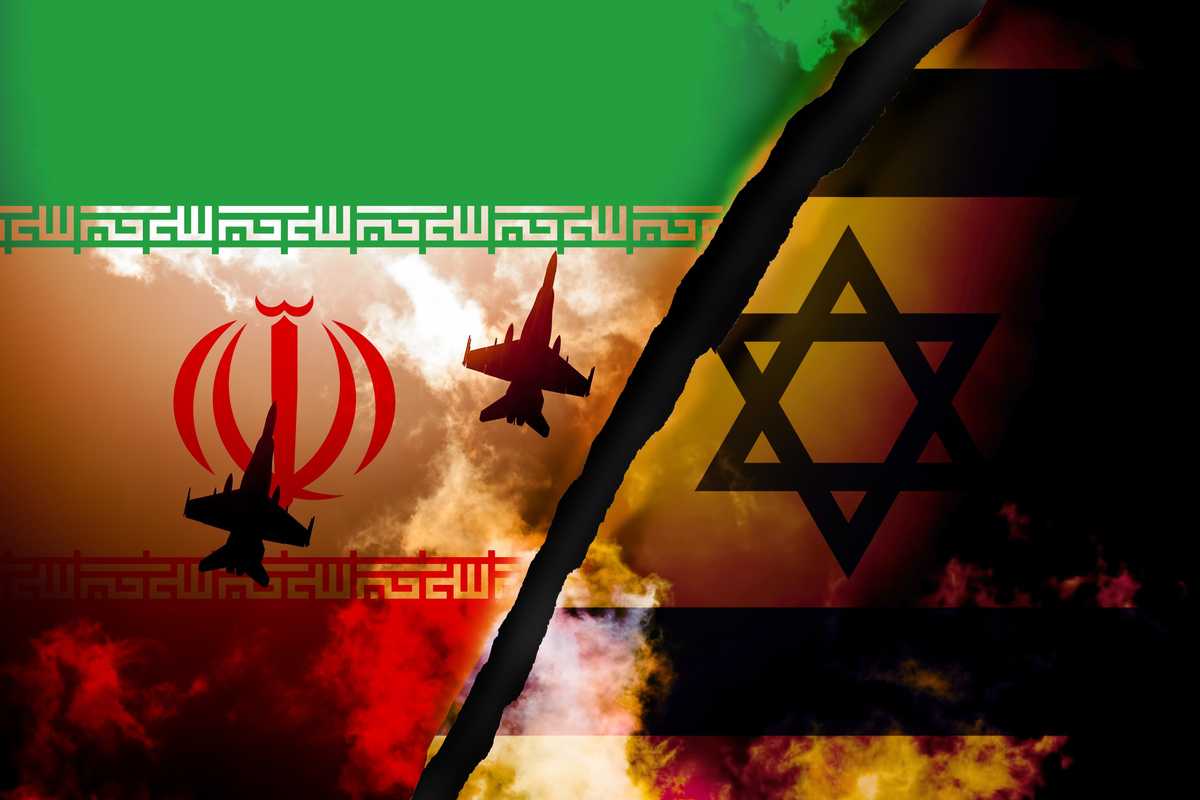Iran vs Israel: Who holds the edge in missile and airpower strength?
Israel’s advanced military, tech and diplomacy put it far ahead of Iran, despite Tehran’s missile progress

Asma Kundi
Producer, Islamabad
Asma Kundi is a multimedia broadcast journalist with an experience of almost 15 years. Served national and international media industry as reporter, producer and news editor.

Despite Iran’s growing missile reach, Israel maintains a clear edge in technology, airpower, and global support.
Shutterstock
As tensions rise in the Middle East, a side-by-side comparison of Iran and Israel’s military capabilities reveals a significant imbalance in power and preparedness.
While Iran has expanded its missile reach, Israel remains far ahead in technology, airpower, and international support.
Geography and distance
Though separated by approximately 2,152 kilometers, Iran showed in October 2024 that distance is no longer a barrier.
That month, Iran launched a missile attack against Israel, proving its ability to strike Israeli territory and demonstrating advances in its long-range weapons program.
Military rankings
According to the 2024 Global Firepower Index, Iran ranks 14th among 145 countries. Its power index score is 0.2269, where a lower score indicates greater military strength.
Iran maintains a large and well-equipped force, with about 610,000 active soldiers and another 200,000 trained reserve troops. These personnel are split between the country’s regular army and the Islamic Revolutionary Guard Corps.
Israel ranks slightly lower at 17th in the same index, with a score of 0.2596. However, its military strategy relies on quality over quantity. The Israel Defense Forces consist of roughly 170,000 active soldiers, a smaller but highly skilled and well-trained force.
Missile capabilities
In terms of missile capabilities, Iran has made notable progress. It has developed both ballistic and hypersonic missiles, including the Fattah 1.
This domestically produced missile can travel at 15 times the speed of sound and evade many modern air defense systems.
Its ability to strike targets deep within Israel demonstrates the growing maturity of Iran’s missile program.
Israel’s defense system
Israel’s strength lies in its defensive infrastructure. At the core of this is the Iron Dome, a system designed to detect and destroy incoming rockets and drones.
The Iron Dome has repeatedly proven its effectiveness by intercepting attacks from groups based in Gaza and Lebanon, shielding Israeli territory from significant damage.
Defense spending
Defense budgets also reveal stark differences. Israel spends nearly $24 billion annually on defense, more than twice Iran’s estimated $10 billion budget.
Despite this, Iran maintains a much larger standing force. In addition to its 610,000 active troops, Iran has access to a population of 41.1 million who are considered fit for service.
By comparison, Israel’s population offers a much smaller pool of potential soldiers — about 3.15 million.
But Israel’s emphasis on advanced training, intelligence, and cutting-edge technology compensates for its smaller numbers.
Air power: Israel’s technological edge
In the skies, Israel holds a decisive technological advantage. According to the International Institute for Strategic Studies (IISS), Israel has 612 aircraft, many of them advanced fighter jets.
Iran has a total of 551 aircraft, but only 186 are fighters.
Israel’s aircraft are equipped with superior avionics, radar systems, and weapons, giving it air superiority in any likely engagement.
Iran’s air force continues to rely heavily on older aircraft, making it less effective in direct confrontations. This difference in airpower further tilts the balance in Israel’s favor.
Naval strength
On the seas, Iran has a broader fleet. It maintains 101 naval assets compared to Israel’s 67.
Iran has expanded its fleet with domestically produced vessels and small submarines imported from North Korea. These assets help Iran project power in regional waters and enhance its maritime presence.
Israel’s naval strategy is more focused. With a smaller but technologically advanced navy, Israel prioritizes coastal defense and precision operations.
This reflects its strategic objectives and reliance on rapid, targeted response capabilities.
‘Iran falls far behind’
Speaking to Nukta, Johar Saleem — former Foreign Secretary and President of the Institute of Regional Studies — said the disparity in military power between Iran and Israel is clear.
“There’s no real comparison between Iran and Israel when it comes to military power and technology,” Saleem said. “Israel’s air force, aircraft, and defense systems are much more modern and sophisticated.”
Saleem added that while Iran has made gains in missile development, its advantage is largely canceled out by Israel’s Iron Dome.
“Iran’s technology and defensive capabilities are weak and outdated,” he said. “The Iron Dome destroys incoming projectiles in the air.”
He also noted that a direct ground war between the two nations is unlikely due to their geographic separation. Any conflict, he said, would most likely be aerial — a domain where Israel holds a distinct edge.
Saleem pointed out that Iranian proxy groups, which once extended Tehran’s reach across the region, have been weakened by Israeli operations over the past year.
He also mentioned shifting political conditions in Syria that have further reduced Iran’s influence.
As for Iran’s options, Saleem said the country might consider closing strategic waterways to disrupt trade. However, he warned that such moves carry serious risks and could erode the diplomatic support Iran still holds.
He concluded that sanctions have played a critical role in setting Iran back. International restrictions have prevented Tehran from purchasing modern weapons systems, severely limiting its ability to keep up with Israeli advancements.
‘Iran no match for Israel’s power’
Imtiaz Gul, a security analyst and Executive Director of the Center for Research and Security Studies (CRSS), shared similar views in his interview with Nukta.
Gul said Israel’s military superiority is enhanced by strong international alliances. “Israel enjoys backing from the United States and possesses state-of-the-art defense systems, including the Iron Dome,” he said.
He added that Israel’s global standing is reinforced by support from other major powers, including the United Kingdom and France.
“There is no real comparison when it comes to Israel’s military, economic strength, and diplomatic capacity across the world,” Gul said.
While Iran has long-range missiles, drones, and even what may be considered a nuclear deterrent, Gul said these tools are no match for Israel’s integrated defense network.
“Israel’s systems can easily intercept most of these missiles and drones,” he said, minimizing the threat they pose.
As military developments continue to evolve, experts agree that Israel retains a clear and decisive advantage in any potential confrontation with Iran — through superior airpower, modern defense systems, and powerful diplomatic alliances.







Comments
See what people are discussing